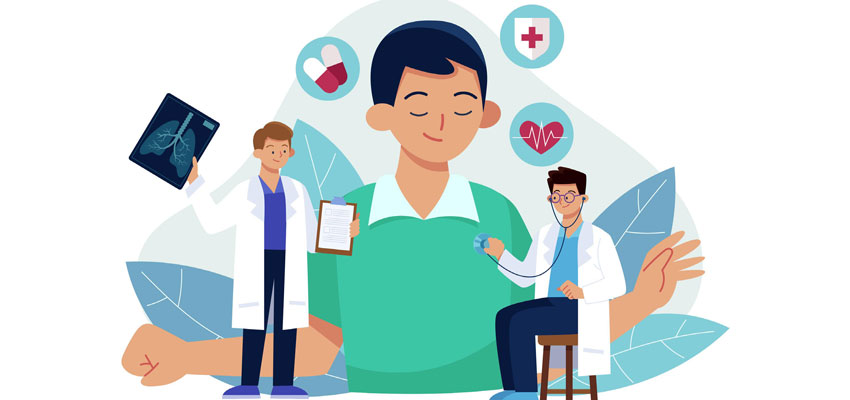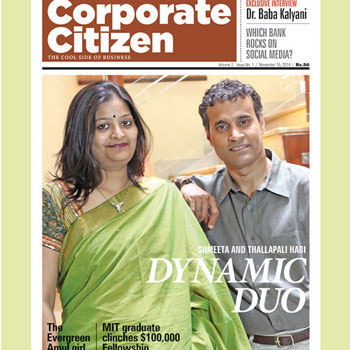It's patient-centric now

India’s healthcare has entered a new era, driven by technological advancements. Hari Thalapalli, CEO, CallHealth with over two decades of experience in health sector, shares his perspective on the sector’s transformation and future prospects
About a decade ago, when I walked into the Healthcare sector, few things were glaringly obvious. Internet penetration had reached dizzying heights in rural India. But its use for accessing healthcare was inherently being resisted.
We had the best of Health care expertise here in India. The doctors were highly qualified and skilled. Diagnostic equipment was best-in-class. The costs were globally competitive. The availability of trained and experienced staff was constrained, but not debilitating. All of this was true, but with one caveat. The above statements were applicable only in Tier-1 cities. Cross 100 kms, and most of these statements would appear to be blatantly false.
Tier-1 cities did have their healthcare representation, but people still chose to travel 200 to 400 kilometres if they wanted specialised care.
Smart devices were still part of an envisioned future—it was more in the realms of possibility. Not the reality, yet.
All in all, the healthcare model was very doctor or hospital centric, very curative and episodic and highly paper-and-pen oriented.
Thanks to technology and few bold pioneering experiments in Digital Health by companies like CallHealth and others, there have been changes at multiple levels.
"Healthcare is evolving from being doctor centric to being patient centric, from a post-mortem analysis (pun unintended) and curative focus to being more preventive, personalised and predictive, and liberating individuals from the travails of physical records"

Access through mobile and web devices has made healthcare services accessible from wherever we are. Doctors, Nutritionists, Physiotherapists, Yoga and Zumba professionals have realised that their geographical reach can be multi-fold through virtual engagements. Covid may have been the inflection point for greater adoption, but that change is now permanent. Like they famously say, Covid was health care’s “demonetisation moment” for tech adoption.
Leading hospital chains, backed by aggressive VC and PE money, have been on an acquisition spree, picking up potential and successful regional hospitals in Tier-2 cities and infusing capacity and capability generously. This enhancement, has significantly increased the quality of healthcare expertise available locally and India’s Tier-2 cities are having their growth spurt. The three largest hospital chains in India - Apollo, Manipal, and Fortis, have about 33 hospitals in Tier-2 cities, indicating the growth spurt of specialised health care beyond Tier-1 cities. The number of medical colleges too have increased across the country, from 387 to 731, thus increasing the number of availability of doctors.
"Mobile apps and electronic health records (EHRs), fuelled by initiatives like the Ayushman Bharat Health Account (ABHA), allows secure, portable access to medical records, decoupling the dependency on manual health records"
From an advanced diagnostic capability point of view, India’s progression has been remarkable. Path Labs like Metropolis, Redcliffe and Agilus cover 2200 cities in India now. A case in point would be the PET Scan Market, which was valued at approximately ₹290 crore in 2023 and is projected to grow at a compound annual growth rate (CAGR) of 8.4% from 2023 to 2030, reaching around ₹510 crore by 2030. Compared to western nations, the costs at which these services are available in India would be miniscule and would be eye-wateringly attractive for the medical tourism sector.
While the traditional areas such as capacity of hospital beds and availability of medical personnel are seeing linear growth, what stands out is the exponential growth in data analytics, image interpretation and AI-fueled diagnostics. While geographical and cognitive limitations influenced the traditional methods of assessing medical results, AI and technology have helped unshackle the barriers of geography and most importantly, access global knowledge in the decision-making process.

A case in point would be fundoscope devices which today can read the retina of the eye and use AI to provide results (e.g. diabetic retinopathy) with close to 97% accuracy.
Tasks such as analysing and interpreting X-rays and radiology images, which once took hours, can now be completed in under one minute, using AI, drastically improving efficiency. While these results are not yet termed ‘conclusive’ the advancements in science will soon make the results irrefutable.
Real-time health monitoring devices, such as BP monitors, 14-day glucose monitoring devices and other such wearables now integrate with mobile technology, delivering real-time, dependable and reliable results. These tools empower individuals to manage their health proactively and seek medical advice, as and when needed.
Those of us closely tracking developments such as the Neuralink experiment will know that quadriplegics are now able to control their computers with their thoughts. This would have been considered science fiction till couple of years back. Other researchers are now talking about making people who have been born blind to be able to see the outside world. Such is the transformation that is in front of us.
The shift to digital health records has also streamlined patient care and improved portability. Mobile apps and electronic health records (EHRs), fuelled by initiatives like the Ayushman Bharat Health Account (ABHA), allows secure, portable access to medical records, decoupling the dependency on manual health records.
India’s Ayushman Bharat Digital Mission, is gradually progressing towards the Unified Health Interface (UHI), which will be akin to the UPI for Financial Services. Every hospital will soon be required to upload the discharge summary or a prescription as a digital record. Every citizen will have their ABHA number which will ensure that health records, like bank accounts, are privately held and portable. Hundreds of healthcare companies including CallHealth have integrated to ABHA and it is only a matter of time before this becomes the next revolution.
In summary, healthcare is evolving from being doctor centric to being patient centric, from a post-mortem analysis (pun unintended) and curative focus to being more preventive, personalised and predictive, and liberating individuals from the travails of physical records.
Personally, I am waiting for the day when embedded nano-chips will proactively alert me when my parameters cross the desired threshold levels and trigger self-healing mechanisms, in a timely fashion. The ultimate goal is not to live forever. But, to ensure that the time in this world is lived fully And healthily.
Stay Healthy. Stay Happy!